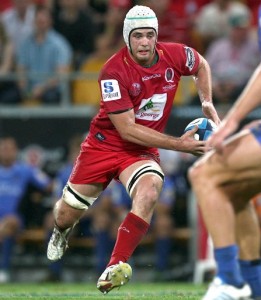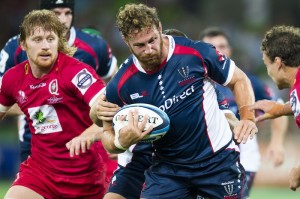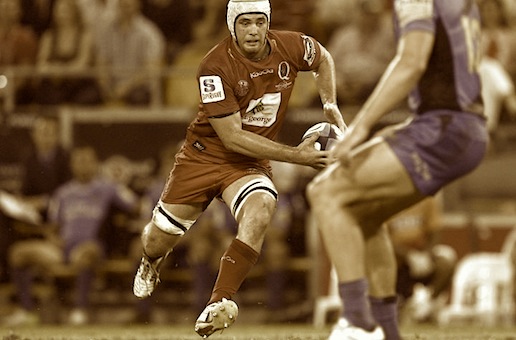An opaque system of brinkmanship style negotiation might be a useful tool for an ARU bent on cost control and player manipulation, but it leaves young Australian rugby talent navigating tricky career decisions in the dark.
 A perfect example of the system’s shortcomings came to light this week, with news that the ARU has declined to offer Liam Gill – the star Queensland openside and one of only two Aussie 7s currently fit and eligible to play against the Lions – any top-up whatsoever. The result of which is that the talented youngster now has a handful of lucrative French Top 14 contract offers to consider carefully.
A perfect example of the system’s shortcomings came to light this week, with news that the ARU has declined to offer Liam Gill – the star Queensland openside and one of only two Aussie 7s currently fit and eligible to play against the Lions – any top-up whatsoever. The result of which is that the talented youngster now has a handful of lucrative French Top 14 contract offers to consider carefully.
It all started months ago when, realising that Liam’s Reds contract was up at the end of 2013, the Gill management team went to the Reds with a number they felt reasonable to secure Liam’s ongoing services. To make the number balance with other squad demands, the salary-capped Reds identified a portion of Gill’s package that they proposed the ARU should cover as part of their tripartite agreement.
This was where the wheels began to come off. The sole person responsible for ARU contract negotiations at the time was the High Performance Director David Nucifora, who – as head coach of the poorly performing Australian Under-20 side – was still sore at Gill for being called up to play for the Reds part way through the Junior World Championships in Argentina.

About this time, Scott Higginbotham was also attempting to negotiate his ongoing Reds package, and also looking for an ARU top-up payment to make the new Wallaby’s pay packet resemble what the struggling and uncapped Melbourne Rebels were prepared to offer. The ARU’s response was that they had already invested all they wanted to in that part of the back row – a reputed $300,000 into Wycliff Palu – and would prefer to see talent spread across the provinces. Bad luck Scott, and Queensland.
And so the Gill camp received a similar response from Nucifora: ‘not interested’.
They let time pass – during which period the High Performance Director left, an unproven Israel Folau received a reputed $400,000 ARU top-up, Quade Cooper substantially improved his deal (despite his toxic outbursts) and David Pocock had his season ended through injury. However, upon returning to the ARU, the Reds and Team Gill got the same treatment. And whereas before they at least knew who the ARU decision-maker was, now they had no idea.
The eventual response was that the ARU had invested all they were willing to into their choice of openside (the injured David Pocock) and had other young options from which to choose. It so happened that Michael Hooper had signed his deal with the Waratahs before even having a starting position with the Brumbies, let alone the Wallabies. Hooper too is unlikely to have any ARU top-up and faces a similar lack of options.
Liam Gill’s choices therefore are to put up and shut up, or leave Australia. This brinkmanship stance is exactly why we see so many tiresome media stories about players moving overseas each negotiation round – it’s the only positive choice that this confrontational stance leaves open. It’s also a poor position for the ARU to get itself into, as it puts high money options like French and Japanese clubs into the role of price-makers, leaving itself and the Super franchises as price-takers.
As RUPA CEO Greg Harris said to G&GR today,
The key stakeholders in Australian rugby – the Super teams, the ARU and RUPA – need to work together to identify objective criteria that can value a player’s prospective value within Australia, rather than one based on overseas markets or solely on past performance.
Clearly we need to be realistic about just how far the ARU coffers can stretch; not every promising young player’s demands can be met. But at present, players and their management have absolutely no visible framework to base their expectations on. The only benchmarking they get is what they pick up informally between each other, and what they see in the press when huge blow-in signings like Israel Folau’s are made from left field.
To get us punching above our weight, the management of the Australian rugby talent pool needs to be open and proactive in how it sets pay, rather than playing parties off against each other in a vain attempt to drive down costs that actually results in losing control of value. That’s a key issue to be Pulverised.


